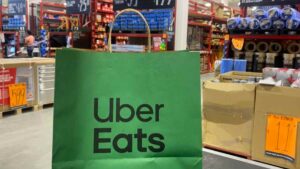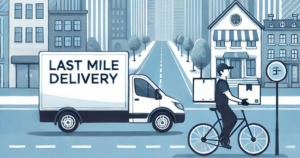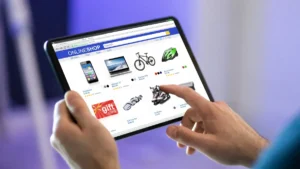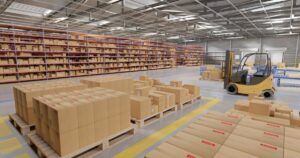Delivery speed has become a key influencer in customer satisfaction and retention for logistics and delivery providers.
But faster transportation often comes with the challenge of increased costs, which can put a strain on your business’s budget.
The question then arises: How can delivery companies reduce transport times without significantly increasing costs?
You may be surprised by the answer: You can utilize technology and optimize operations.
You may be a logistics business that struggles with:
- Fuel costs.
- Driver management.
- Peak time delivery management.
- Vehicle maintenance costs.
Let’s explore the strategies delivery and logistics companies can use to achieve faster shipment while keeping operational costs in check by providing businesses with access to a vast delivery network.
Factors to consider to keep operational costs in check
For delivery and logistics companies, maintaining strong relationships with clients and understanding their needs is critical for managing operational costs.
Profit margins
Maintaining a healthy profit margin is essential for the sustainability of your business. If costs rise without a corresponding increase in revenue, profit margins shrink, leading to financial instability. Ensuring that services are delivered efficiently is crucial to maintaining these profit margins.
Competitive pricing
Companies must offer competitive prices while maintaining service quality in a competitive world.
High operational costs can force companies to raise prices, potentially driving customers to competitors. Maintaining a professional service justifies competitive pricing, ensuring customer satisfaction and loyalty.
Scalability
Lower operational costs allow companies to scale their operations more effectively. By controlling costs, companies can expand their services to reach more customers, and grow their market share without sacrificing profitability.
Customer satisfaction and client feedback
Cost efficiency can enable companies to invest more in customer service and satisfaction. Offering quick delivery at a reasonable price enhances customer loyalty and encourages repeat business.
Additionally, providing easy access to a collection point for parcels further improves customer convenience and satisfaction.
Route optimization software and collection point integration
Picture this: You run a restaurant delivery service in a bustling city. You’ve noticed a trend of late deliveries and increasing customer complaints about cold food.
By implementing route optimization software, you can deliver exceptional service by ensuring your drivers follow the most efficient routes, avoiding traffic hotspots and ensuring that food arrives hot and fresh.
How does route optimization keep costs low?
Route optimization software ensures your delivery driver handles parcels efficiently, providing the best routes for quick and reliable delivery. Here’s what route optimization can do for your business:
Optimized delivery routes for parcels
When you use this technology, you minimize driving unnecessary mileage. This reduces fuel consumption and vehicle wear and tear, directly lowering operating costs.
Efficient routes also mean drivers spend less time on the road, increasing the number of deliveries completed in a day without extra labor costs.
Reduced planning time
Route optimization software automates the complicated task of planning delivery routes, drastically reducing the time needed for manual route planning.
Less time spent on planning means lower labor costs and quicker response times to customer demands, enhancing overall operational efficiency.
Fleet management and delivery driver coordination
The software ensures that each vehicle is used to its full capacity. Better utilization means fewer vehicles are needed for the same number of deliveries, which reduces costs associated with vehicle maintenance and fuel.
Reliable deliveries
Route optimization software will help your business consistently meet delivery windows, or having to offer discounts for late deliveries, protecting revenue and customer satisfaction.
Real-time tracking and communication
When a customer places an order, a live tracking link is automatically generated for each individual. Your customer can view the dispatched order’s live tracking and follow the driver’s journey until it arrives at their door.
Using real-time tracking can allow your drivers to make decisions if there are delays or a driver needs to be rerouted.
This level of visibility about a particular dispatch can help you save on costs associated with late deliveries. Encourage your customers to contact your support team for assistance if they have any questions or need help with their delivery.
Picture this: You are a driver for a courier company that uses a real-time tracking system that generates a live link for customers when an order is placed, allowing them to track their order in real-time.
On a busy afternoon, you encounter an unexpected road closure on route to drop-off. Instead of getting stuck in traffic, thanks to technology, you can reroute to a road with no traffic congestion.
At the same time, the customer stays informed about their delivery. By using real-time tracking to make quick route adjustments, your company reduces the risk of late deliveries. It saves on fuel costs, all while keeping customers satisfied and operational costs low.
Let’s recap
Reducing delivery times without increasing costs is a delicate balance that requires a strategic approach and advanced technology.
Investing in online delivery management software can help delivery and logistics companies achieve faster deliveries while keeping costs in check.
NOW READ: Yodel launches two new collection services to empower SMEs
Photo Credits: Canva
About the author
Sharl is a qualified journalist. He has over 10 years’ experience in the media industry, including positions as an editor of a magazine and Business Editor of a daily newspaper. Sharl also has experience in logistics specifically operations, where he worked with global food aid organisations distributing food into Africa. Sharl enjoys writing business stories and human interest pieces.












